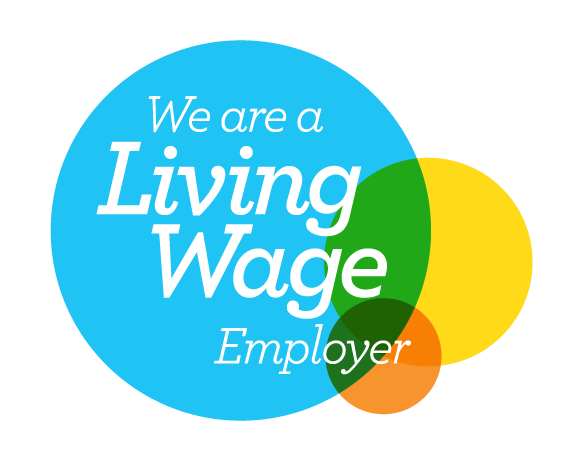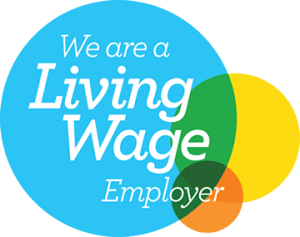ESOS
(Energy Savings Opportunity Scheme) was the UK’s response to Article 8 of the EU Energy Efficiency Directive (EED) 2011. It consists of 3 four-year phases. Two are now complete (the phase 2 compliance period ended in December 2019). We are now in Phase 3, with a compliance date of 5th December 2023.
1. Do we qualify for ESOS phase 3?
Businesses likely to be in scope for ESOS meet the following criteria:
- Operate with 250 or more employees
- Operate with fewer than 250 employees but:
a) Have an annual turnover exceeding £39 million
b) Have a balance sheet exceeding £33.5 million
- Are part of a corporate group which includes an undertaking which meets either of the above criteria
Organisations subject to the Public Contracts Regulations (2006) are exempt from ESOS, although some trusts, public companies and not-for-profit bodies may be included.
2. ESOS Phase 3 – what dates do I need to know?
Two dates govern ESOS Phase 3: 31 December 2022 is the qualification date, that is, the next date by which organisations must determine whether they need to comply with ESOS spelling the above criteria. 5 December 2023 is the compliance date for Phase 3, that is, the date by which qualifying organisations must demonstrate compliance.
As the UK Government has adopted the European energy legislation, Brexit does not affect ESOS.
3. Should I be focusing on ESOS now?
Clearly every organisation’s focus has shifted in recent months to weathering the coronavirus storm, but 2022 isn’t far away and now really is the ideal time to prepare for your review. The better the systems you can put in place now, the easier reporting will be.
If your organisation qualifies, making ESOS part of your planning now will help lock in compliance and avoid stiff penalties for non-compliance. Yet that is really only the ‘stick’ element of ESOS. Of far more interest to the organisations that make the most of ESOS is the ‘carrot’ because compliance, done properly, means identifying waste, finding improvements and making big savings.
ESOS is not a box to tick come 2022/3. It is an ongoing process with assessment being just the start of a deep review of an organisation’s energy needs. Given its potential benefits, it’s well worth your focus now, despite other challenges.
4. We qualified for ESOS Phase 1 but not phase 2? Do we need to take part in phase 3?
Yes. All companies need to see if they qualify for each phase of ESOS. It is possible to have met the criteria at the qualifying date for phase 1 but not for phase 2 – if, for example, your balance sheet dipped under £33.5 million. Similarly, your company may have qualified for phases 1 & 2 but may not for phase 3. All companies, if they have qualified for an earlier ESOS phase but not phase 3, will need to confirm this with the Environment Agency via the Government’s website.
5. I qualify for ESOS. How do I comply?
If your company qualifies then you will need to calculate your energy consumption over the previous 12 months, including transport (which is often a sticking point). Then you’ll need to account for at least 90% of that usage, either via ESOS Energy Audits, Green Deal assessments, DECs or certification to ISO50001, Energy Management System (EnMS). Again, all accounting must include transport.
An audit should analyse your energy data and identify energy-saving opportunities. The resulting report should identify savings and payback figures from taking advantage of those opportunities, although it is not compulsory to act on the findings. Sites certified to ISO50001 will as a matter of course be looking continuously to identify and implement opportunities.
6. How do we implement improvements?
Whilst acting on the recommendations of your audit is not compulsory, failing to implement the energy opportunities is to miss out on potentially significant cost savings and energy efficiency. It is worth noting, however, that your audit will have used generalised costs to identify potential savings (that is, formal quotations will not have been sought and published costs will represent a logical but generalised mid-point between the typically cheapest and most expensive options).
To fully understand your requirements one of our engineers will need a site visit to explore issues such as preferred suppliers, installers, payback periods and phased implementation.
COVID-19 update: Site visits may prove difficult in the current environment, but at least one visit is essential (although much preparatory work can be completed by phone or video call). As workplaces develop their response strategies, site visits should become easier and, in anticipation of that, planning should start now.
7. Can I implement ESOS improvements on my own? Why should I use Optimised Energy?
You can implement the findings in-house. But the benefit of choosing Optimised Energy lies in the ability to offload compliance and improvements to experts. From your perspective, effort and input is minimal, leaving the work to specialists who can maximise the results, leaving your own people to focus on their areas of expertise.
In bringing our expertise to bear on your business, you benefit from our experience across multiple sectors and with multiple leading suppliers with proven technologies. And because we are not tied to any individual supplier or technology, we are free to recommend the ones we know will work for you.
8. Should we ‘test drive’ our ESOS assessor for a year?
You could, but you would be limiting the potential for success. If you engaged Optimised Energy, for example, under an Energy Efficiency contract for one year, we would be able to produce tender reports (e.g. obtain required quotations), undertake tender analysis and deliver a report with recommendations and full costs.
There would, however, be only limited time to implement these opportunities. And dependent on the payback period, there may be insufficient time to monitor performance and measure savings, especially if capex is from the following year’s budget.
Ideally we would prefer to undertake the whole process: tendering and analysis, project managing implementation, monitoring and verification of savings. That typically takes three years.
9. We’ve been going through the ESOS process with another supplier. Can we switch to you?
Yes. Whether you started working with us in phase 1 or are joining us for phase 3, we can help implementing opportunities from the last ESOS audit(s) but we we’ll use the next audit report as the starting point for identifying new opportunities.
10. How much will we save?
It’s difficult to say with certainty as all organisations have different profiles, operational hours, consumption levels and more. There really is no one-size-fits-all model, which is why a bespoke service and site visits are essential.
That said, if we take a representative sample of ten Optimised Energy Clients, then we can say the minimum cost saving is 6% of energy spend and the maximum is 22%. In total we identified savings of almost £13 million for clients in 2019 alone. Those savings were realised across dozens of technologies, but the technologies implemented most frequently included:
LED lighting upgrades and control
Compressed air savings
Metering, Monitoring & Targeting
HVAC
Motor controls
Plant/processor controls
It’s worth stressing those are typical implementations looking at the picture across all clients. Other, less common technologies have ranged from low loss transformers to CHP installation, thermal insulation to steam system improvements.
Holistic energy savings
ESOS has always been an opportunity. But we know that for many organisations it has, to date, been an opportunity missed. Optimised Energy builds long lasting working partnerships with clients who want to do more with ESOS than merely comply. We’re good at finding opportunities to save. We’re even better at implementing them.
To find new opportunities for energy saving in your organisation – in ESOS and beyond - talk to us.









